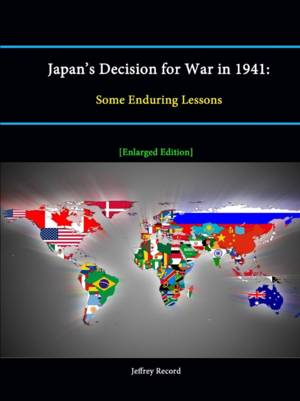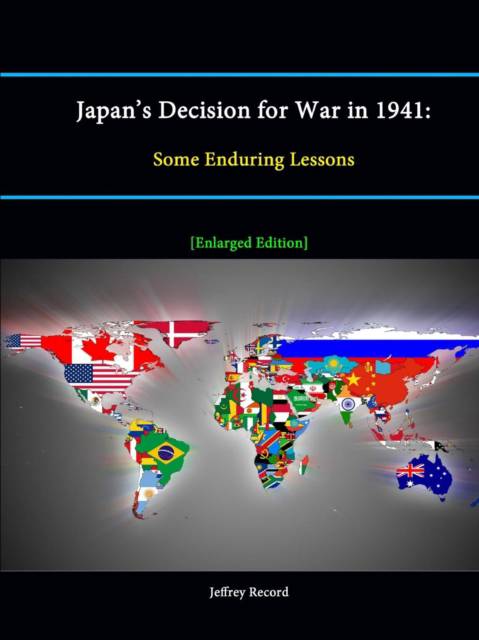
- Afhalen na 1 uur in een winkel met voorraad
- Gratis thuislevering in België vanaf € 30
- Ruim aanbod met 7 miljoen producten
- Afhalen na 1 uur in een winkel met voorraad
- Gratis thuislevering in België vanaf € 30
- Ruim aanbod met 7 miljoen producten
Zoeken
Japan's Decision for War in 1941
Some Enduring Lessons [Enlarged Edition]
Jeffrey Record, Strategic Studies Institute
Paperback | Engels
€ 15,95
+ 31 punten
Uitvoering
Omschrijving
The author takes a fresh look at Japan's decision for war in 1941, and concludes that it was dictated by Japanese pride and the threatened economic destruction of Japan by the United States. He believes that Japanese aggression in East Asia was the root cause of the Pacific War, but argues that the road to war in 1941 was built on American as well as Japanese miscalculations and that both sides suffered from cultural ignorance and racial arrogance. He finds that the Americans underestimated the role of fear and honor in Japanese calculations and overestimated the effectiveness of economic sanctions as a deterrent to war, whereas the Japanese underestimated the cohesion and resolve of an aroused American society and overestimated their own martial prowess as a means of defeating U.S. material superiority. He believes that the failure of deterrence was mutual, and that the descent of the United States and Japan into war contains lessons of great and continuing relevance to American foreign policy...
Specificaties
Betrokkenen
- Auteur(s):
- Uitgeverij:
Inhoud
- Aantal bladzijden:
- 82
- Taal:
- Engels
Eigenschappen
- Productcode (EAN):
- 9781304888884
- Verschijningsdatum:
- 8/02/2014
- Uitvoering:
- Paperback
- Formaat:
- Trade paperback (VS)
- Afmetingen:
- 216 mm x 279 mm
- Gewicht:
- 213 g

Alleen bij Standaard Boekhandel
+ 31 punten op je klantenkaart van Standaard Boekhandel
Beoordelingen
We publiceren alleen reviews die voldoen aan de voorwaarden voor reviews. Bekijk onze voorwaarden voor reviews.











